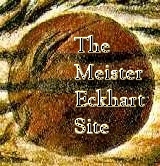|
|
||
 |
Meister Eckhart Home / Works by Meister Eckhart - Quotes / Inspired by Eckhart / Studies / The Papal Condemnation / Mail & Announcements / Links / Books |
M. LAISTNER
Knowledge of Greek in Western Europe during the earlier Middle Ages
Chapter 10 (The Study of Greek) of Laistner's, Thought & Letters in Western Europe - A.D. 500 to 900, N.Y. 1931, pp. 238-250
Page 8
John made other translations from the Greek. Again at the king's request he produced a Latin version of the Ambigua by Maximus Confessor (died 662). This work was made up of difficult passages from the homilies of Gregory of Nazianzus together with a commentary. Since Maximus used the pseudo-Dionysius for his exposition, John in preparing his Latin version was on ground that was already in part familiar. He also translated, wholly or in part, the treatise De opificio hominis, a discussion of Genesis i, 26, by Gregory of Nyssa. He calls it Sermo de imagine and seemingly confused Gregory of Nazianzus with Gregory of Nyssa. Parts of a Latin rendering of Epiphanius' Ancoratus may also be attributed to John with great probability; but there is more doubt about an extant Latin version of the Solutiones of Priscianus Lydus. The Greek original of this work, which was composed in the sixth century and deals with various topics of natural science and natural history, is lost; the translation has been attributed to John but is probably not his.[20] The commentaries which John composed to elucidate further the meaning of the pseudo-Dionysius, and here and there also to justify his own translation, afford additional proof that his linguistic equipment was very respectable. Especially noteworthy, moreover, in an epoch when allegorical interpretation was all but universal, is the fact that he assigns to this quite a subordinate place in his commentaries. Finally a few specimens of Greek verse composed by John survive.